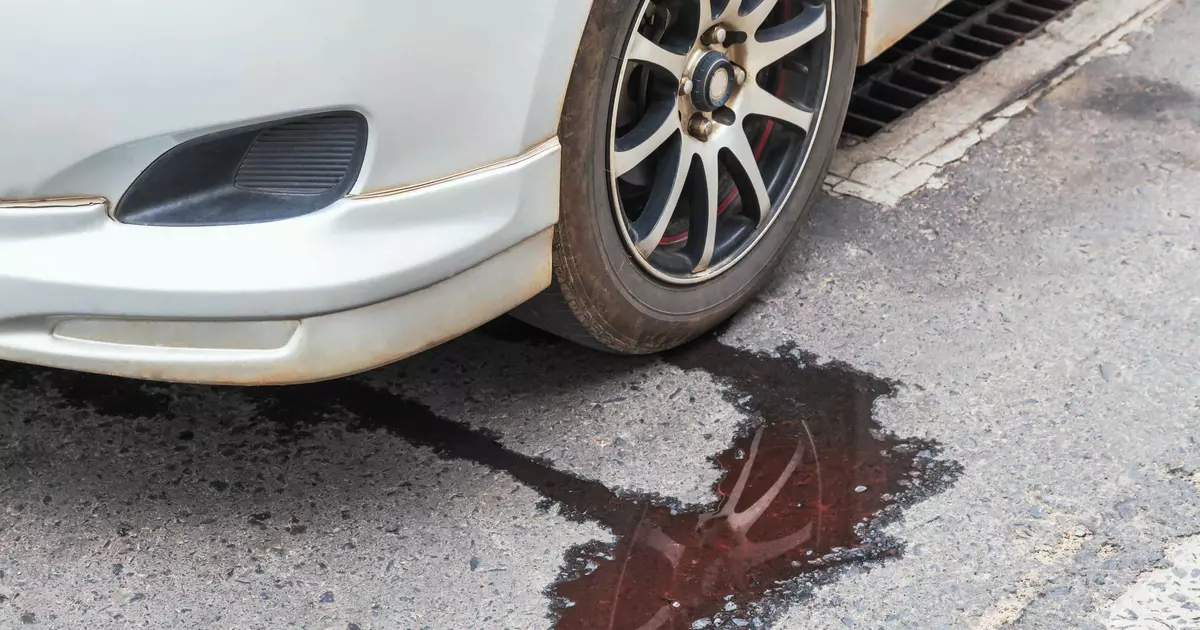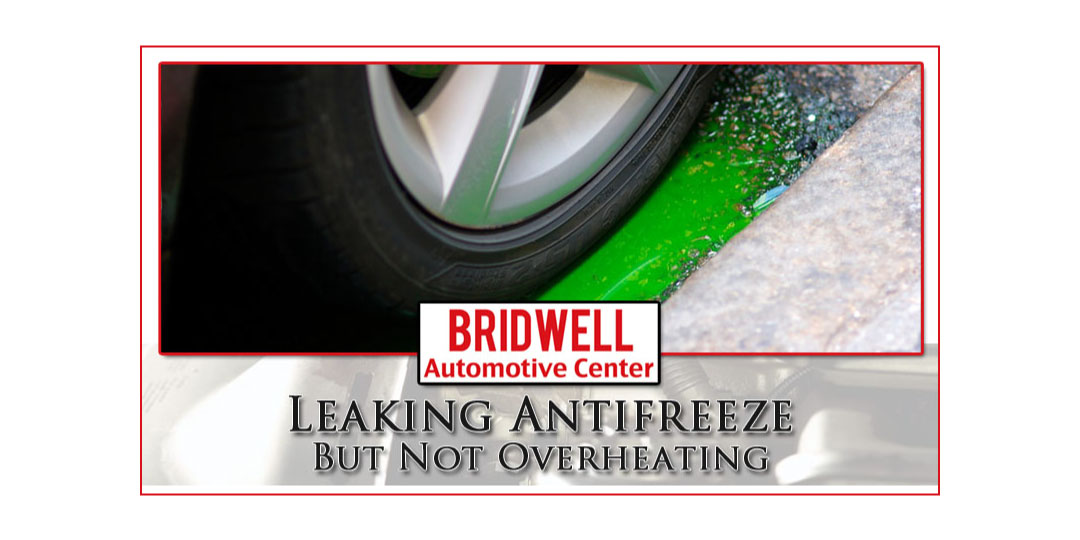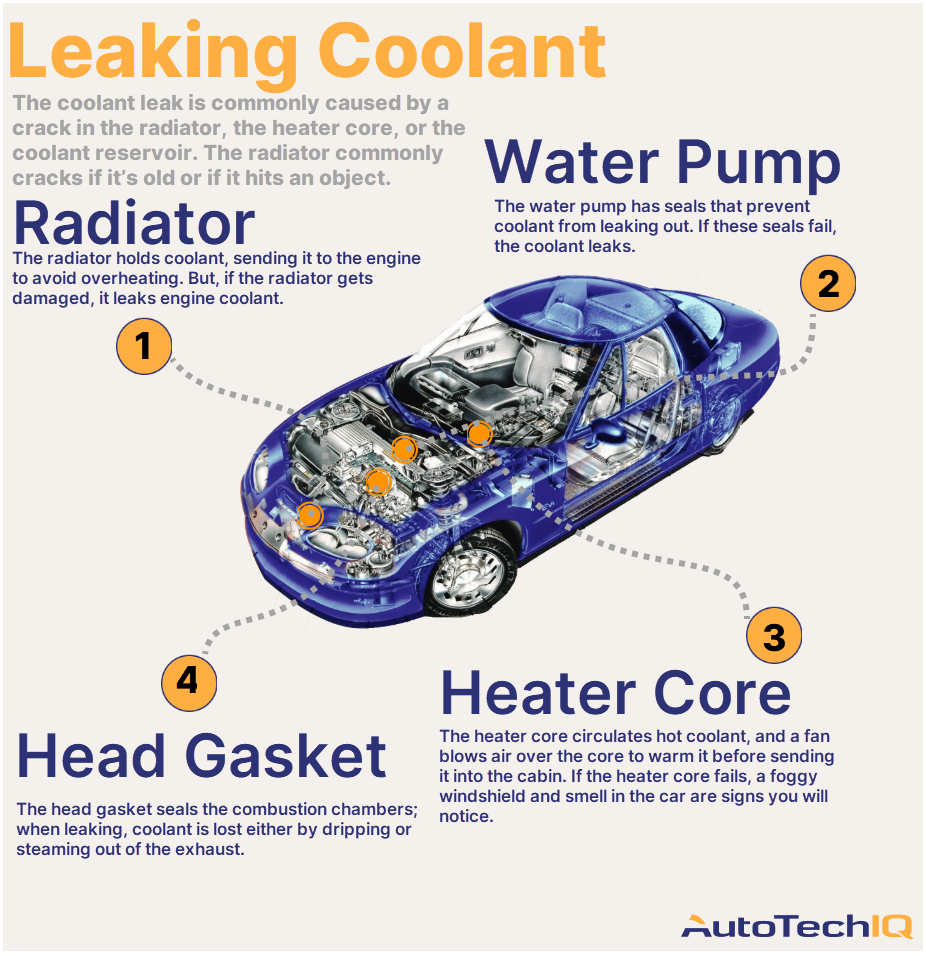Your car may be leaking coolant when not running due to a damaged radiator or a faulty water pump. Experiencing coolant leakage from your car when it is not in operation can be concerning and requires immediate attention.
Several potential issues could be causing this problem, such as a cracked radiator, a damaged water pump, or a malfunctioning thermostat. It is crucial to address coolant leaks promptly to prevent overheating and damage to the engine. We will explore the reasons why your car may be leaking coolant while not running and provide insights on how to diagnose and fix the issue effectively.
Let’s delve into the possible causes and solutions for this coolant leak problem to keep your vehicle running smoothly.

Credit: haynes.com
Possible Causes Of Coolant Leaks
Discovering a coolant leak in your car, even when it’s not running, can be a cause for concern. Coolant, also known as antifreeze, is vital for regulating the engine temperature and preventing it from overheating. If you notice a puddle of coolant under your car or the coolant warning light is on, it’s important to identify the cause of the leak and address it promptly. Here are some possible causes that may lead to coolant leaks in your car.
Loose Or Damaged Hose
A loose or damaged hose can be one of the leading causes of coolant leaks. Over time, the hoses that carry coolant from the radiator to the engine can become worn, cracked, or disconnected. Similarly, loose clamps or fittings can cause coolant to leak. Inspect the hoses visually and ensure they are securely connected. If you spot any damage, replacement is necessary to prevent further leaks.
Faulty Radiator Cap
The radiator cap is responsible for maintaining the pressure in the coolant system. If the cap becomes faulty or worn out, it can result in coolant leaks. Inspect the radiator cap carefully for any signs of damage or deterioration. A faulty cap can cause excessive pressure, leading to coolant overflow and leaks. It’s advisable to replace the radiator cap if you notice any issues.
Leaking Water Pump
The water pump plays a crucial role in circulating coolant throughout the engine. However, age and wear can cause the water pump to develop leaks. Check around the water pump area for any signs of coolant leakage. If there is evidence of leaking or damage, it’s important to replace the water pump promptly to safeguard your engine.
Cracked Coolant Reservoir
The coolant reservoir, also known as the overflow tank, holds excess coolant and helps maintain the coolant level in the system. Over time, the reservoir can develop cracks or leaks, resulting in coolant loss. Inspect the reservoir for any visible cracks or signs of leakage. If the reservoir is damaged, it should be replaced to prevent further coolant leaks.
Internal Engine Issues
In some cases, coolant leaks can be caused by internal engine issues. These issues can include a blown head gasket, cracked engine block, or a faulty intake manifold gasket. If the coolant leak persists even after checking the hoses, radiator cap, water pump, and coolant reservoir, it may be necessary to seek professional assistance to diagnose and address these internal engine issues.

Credit: www.bridwellautocenter.com
Signs Of Coolant Leaks
Puddles Or Stains Under The Car
If you notice puddles or stains underneath your car, it could be a sign of a coolant leak. Coolant is usually a bright green or orange color, so any liquid of a similar hue under your car may indicate a leak.
Overheating Engine
An overheating engine could be a sign of a coolant leak. When the coolant levels drop, the engine may not be adequately cooled, causing it to overheat. If your temperature gauge consistently reads high while driving, it’s crucial to investigate for a coolant leak.
Sweet Smell Inside The Car
A sweet smell inside the car, reminiscent of maple syrup, might be a sign of a coolant leak. This odor is caused by the evaporation of coolant in the car’s heating system. If you notice this scent, it’s essential to have your car inspected for leaks immediately.
Low Coolant Level
If you observe low coolant levels in your car’s reservoir, it’s an obvious indicator of a coolant leak. Regularly check the coolant levels and if it frequently needs topping up, there could be a leak in the system that needs attention.

Credit: www.autotechiq.com
Conclusion
Ultimately, a car leaking coolant while not running can be a concern. By understanding the potential reasons behind this issue, you can take proactive steps to address the problem and prevent further damage to your vehicle. Whether it’s a faulty radiator cap, a damaged water pump, or a cracked head gasket, addressing the issue promptly is key to maintaining your car’s performance.
Regular maintenance and inspection can help identify and rectify the issue before it becomes a larger problem, allowing you to keep your car running smoothly and efficiently.


